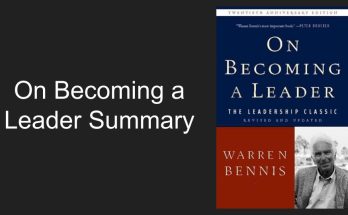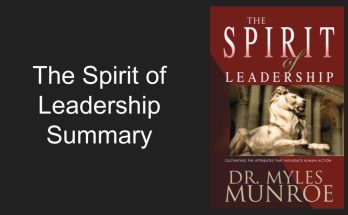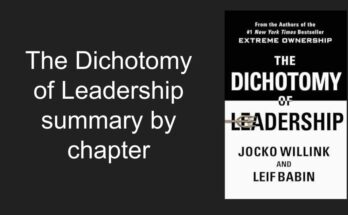In this short, the earned life summary, we will discuss the latest book by Marshall Goldsmith.
The earned life: Loose Regret, Choose Fulfillment by Marshall Goldsmith and Mark Reiter, tells us about Buddhism and how it is applicable to everyone one of us.
I personally loved What got you here won’t get you there by Marshall Goldsmith, and here in The Earned Life summary, we will see the latest insight by him.
What will we learn in The Earned Life summary?
- What is the new way of thinking about fulfillment?
- How to profit from Buddhist wisdom?
- Don’t rest on old achievements.
- Questions that elicit profound answers.
- Aspiration is more fulfilling than ambition.
- How to choose realistic aspirations?
What is the new way of thinking about fulfillment?
While writing this The Earned Life summary, I have pondered on this question a lot. What is the new way of thinking about fulfillment which Marshall has been preaching lately?
Marshall shares learning from Buddhism: like the only reality is the present.
We all suffer because of the distorted view of happiness we have about it.
We believe if we achieve our goals, we will be happy. For some of us, goals can be money, relationships, health, financial freedom, and many more.
In reality, those achievements do not bring lasting happiness to us. The euphoria of achieving goals may not last long and we set our next goal.
And the cycle keeps on going, one goal after another goal, but why are we still not happy?
What is the new way of thinking about fulfillment? Buddhism has an answer for it.

Learn to value the present, Fulfilment is the process and not the outcome.
We have to learn to focus on fulfillment here and now.
How to profit from Buddhist wisdom?
Buddha revealed that life is not permanent. He added that pleasure, happiness, and even our goals will not last long. Everything will not last.
Life is constantly changing, we become different people from moment to moment.

The present is the only reality, our past belongs to our past selves, and the future will belong to our future selves.
Marshall Goldsmith suggests in this the earned life summary that we can take this thinking as a mental exercise, we can see the world from Buddha’s perspective.
Buddhism learning can help us to know what is the meaning of leading a fulfilling life.
We are all currently trapped in a Western paradigm that tells us we will be happy when we achieve our goals and completely ignores the reality that everything is temporary and keeps on changing.

Goals can keep on changing, we will always look for bigger and better houses, cars, status, and finances if we achieve one. We aim for the next big thing on the list.
How to profit from Buddhist wisdom? How can it help us escape from this vicious cycle of goals?
Marshall Goldsmith believes accepting that everything grows and fades can be a great personal development tool.
Accepting change is the only rule of life. It can help a great deal to move on in life, makes you open to new adventures, and gives a powerful motive to become a better you.
All these possessions as per the Western paradigms like your status, achievement, and relationships are temporary.
You have to keep on working on them. They have to be re-earned probably for every hour, every moment, and every breath.
Don’t rest on old achievements
So far in the earned life summary we discussed Buddhism and its theory, now it’s time for some exercise.
You will write two letters in this exercise, one to your past self thanking you for all the sacrifices, efforts, and everything you put in.
The second letter you will write to your future self, for next year, 5 years, 10 years, and 15 years, where you commit yourself to constantly changing and updating yourself.
This exercise does not mean you forget all your past achievements, it simply means you pay homage to your past self, and thank him for the efforts and sacrifice you have put in to become what you are today.
While you write a letter to your future self, it becomes a commitment that you will change and grow.
Questions that elicit profound answers
We make thousands of decisions every day, like what to eat, and how to commute, and all small daily activities require us to make decisions.
All these decisions may not be difficult but they do take energy. However complex decisions like marriage, buying a house, or planning retirement can be difficult.
In the earned life summary we will learn how simple questions can elicit profound answers.
- What do I want to do with my life?
- What can I do that is meaningful?
- What would make me happy?
These are simple questions but have multifacet answers, you can elicit profound answers with these questions.
Aspiration is more fulfilling than ambition.
Aspirations bridge the gap between your present self and your future self.
Ambitions are the goals you want to achieve, they may not bridge the gap.
Our aspirations are not about the end goals, it is about what new things we care about, and what new learnings we are ready to take to bridge the gap between peasant and the future.
Aspiration is a journey, not the destination same as fulfillment, you can feel more fulfilled when you aspire to something and work towards it.
Ambition can be a tick in the box activity which can be achieved, while aspiration happens over a period of time.
How to choose realistic aspirations?
For realistic aspirations, we can always take the Dichotomy of resolutions exercise.
It is just not making decisions based on comparing components, it is about choosing a realistic approach.
Here in the earned life summary, now we will see a small exercise of the dichotomy of resolutions.
First list out all the dichotomies you can think of, it can be anything related to you, the decision you want to make, or the comparison you want to make.
Once your list is prepared take a closer look and cancel all the items that are not applicable to you or irrelevant to you.
For the final step, see the comparison for example leading others or following someone, and cancel out the part which is not for you.
You can go on and on until you find what really suits your needs.
In this short, the Earned Life summary we discussed the key ideas about the book, you can give it a try on audible here.


